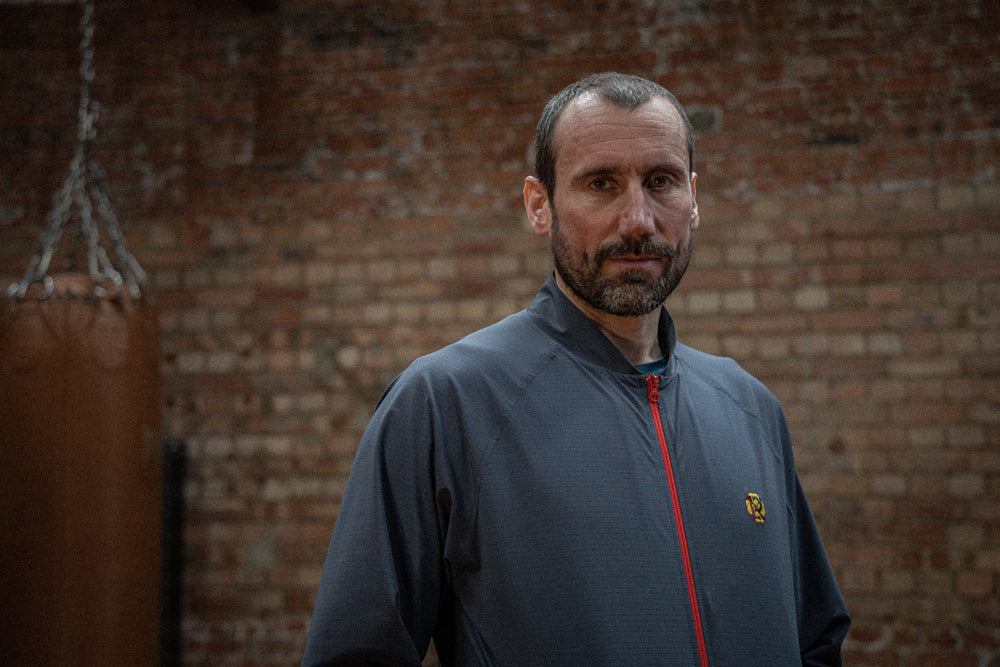
RESPONSE TO GRIEF
Is there ever a better time to improve our physical regime than when we’re feeling grief, heartbreak or rejection. Training to strengthen ourselves physically feels like the best anecdote to our mental and emotional vulnerability. We can control our physical choices, even if our hearts and minds have been impacted by events beyond our control. Working on our fitness feels like we’re building resolve and expressing our intent physically to overcome emotional sensitivities.
In boxing as in life, we can take a hit - to give two back. Nothing says resilience more than boxing; the existential notion is that we’re going to get hit. If we get hit hard, we can take a ten-count. If we get knocked down, rise, take a deep breath and continue. If you lose and live to fight another day - learn from your lesson. Learn that you can control you and rarely the circumstances.
Boxing is a potent anecdote to grief and a conduit to enhanced mental wellbeing. The physical benefits can sustain an uptick in your mood or self-esteem, with better longer-term assurances than medication.
“Physical activity is 1.5 times more effective at reducing mild-to-moderate symptoms of depression, grief, psychological stress, and anxiety than medication or cognitive behaviour therapy…high intensity exercise produces the greatest effect.” Dr. Ben Singh, University of South Australia.

There are four things than can enhance your mood and recreational boxing boasts all of them. They are; a sense of achievement, enjoyment, closeness to others and something that’s beneficial to the body. Non-contact boxing is also inclusive, social and something to look forward to. Whether it’s in a class, hitting the pads or holding someone’s feet while they do sit-ups, you’re never doing this alone.
Depression and anxiety are often not far behind any breakup or loss of a loved one. Exercise is powerful tonic for combatting these symptoms. Causing a spike in physical activity releases neurochemicals like endorphins and neurotransmitters such as dopamine, serotonin and norepinephrine. Endorphins are nature’s pain killer and act like a blissful sedative; serotonin regulates mood, dopamine signals reward and noreprinephrine enhances alertness, improving cognition and clarity of thought clouded by stressful events. This cocktail of neurochemicals and transmitters drives communication between brain cells to better regulate physical and emotional health.

Even if we can’t say for sure why emotional pain affects our performance and physical strength, the bodily sensations can be many and can be debilitating. It’s quite normal in state of grief to lack your usual vigour or muscular tolerance under stress. We are depleted, often lacking energy and our bodies can feel stiff, due to higher rates of cortisol and adrenaline released into the body, which put the muscles into a fight or flight mode. Exercise can relieve the muscles of tension, so it is a great option if you are feeling physical upset as the result of a relationship breakdown. Alternatively, a massage, meditation or mindfulness can all work to ease tired muscles.
Our bodies hear everything our minds say. It is our thoughts and feelings that trigger responses in the chest (or heart) when we experience heartbreak, our stomach and our immune system when we feel weak and sad.
It’s well documented that our stomachs are an important domain for feeling and intuition - our ‘second brain’. According to Florida State University, gut to brain signals powerfully manipulate how we feel and our overall mood. Signals are sent via the Vegus nerve from the gut to the brain. The Vegus nerve sends more signals than any other system within the body.
In just the last few years, evidence has mounted from studies in rodents that “the gut microbiome can influence neural development, brain chemistry and a wide range of behavioural phenomena, including emotional behaviour, pain perception and how the stress system responds." John Bienenstock, Neuroimmunologist at Hamilton University, Ontario.
With a will to overcome, what we choose to put in our bodies is thus of great importance in regulating our mental and emotional wellbeing. The process of grief cannot be rushed, but when experiencing heartbreak or grief we can gladly choose to fuel ourselves with optimal nutrition. Serotonin, sometimes known as the ‘happy’ hormone, is a neurotransmitter helping to regulate anxiety and enhances mood - 90% of which is produced in our gut. Managing our wellbeing through what we put in our body and what we do with our bodies (i.e. exercise and movement) will set us up for the most robust response to emotional trials and mental tribulations.
REAL fight for enhanced mental and emotional wellbeing through physical action. As information and intelligence become the domain of computers, society will place more value on the one human ability that cannot be automated: emotion. Be you - Be REAL.









Leave a comment
This site is protected by hCaptcha and the hCaptcha Privacy Policy and Terms of Service apply.